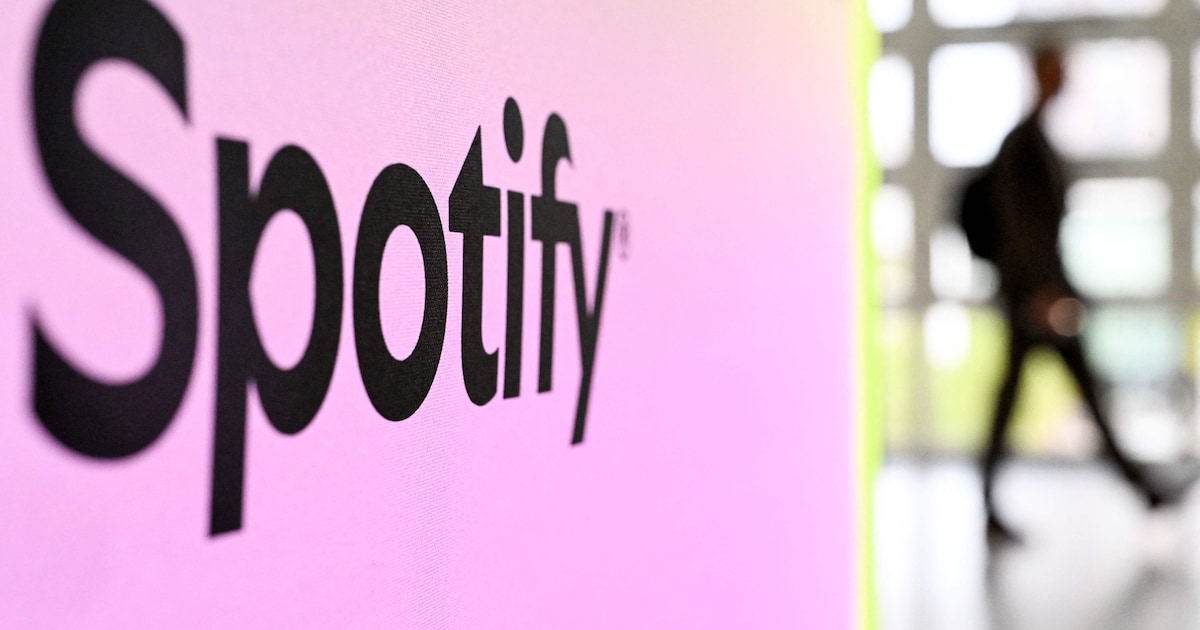
Organized crime, terrorist organizations, multi-million dollar fraud; This is not a topic you would expect at the always lively Amsterdam Dance Event (ADE).
At the four-day conference surrounding the festival, which attracts hundreds of dance professionals each year, hopeful matters are usually discussed. This year, for example, the rise of dance culture in Africa is being celebrated, or the rise of DJs and producers from Australia.
Completed by the author
Robert van Gijssel is the music editor de Volkskrant and writes about pop and the music industry. He also writes about gaming culture.
But no matter how successful dance has become in recent years – worth almost ten billion euros a year – there is still a storm hanging over all the fine figures, and even the entire music industry. The reason is that the problem of so-called ‘streaming fraud’ is becoming increasingly acute.
In recent years, major streaming platforms have paid out millions of euros to dubious parties, ranging from artists who artificially inflate their streaming figures to criminals who manage entire ‘streaming farms’ or hack networks. And there’s not much you can do about it.
Terror group
The numbers are surprising. According to Andrew Batey, an American streaming fraud expert and one of the speakers at ADE, an estimated 2 to 3 billion euros in copyrights are lost to bad actors every year. Nearly 10 percent of all music played worldwide is said to be fake.
Batey is the co-founder of the company Beatdapp, which uses special software to detect fraud and alert artists, distributors and streaming platforms when dubious actions are detected.
He himself is a former hacker. In his youth, Batey made sure his favorite artists received better click rates on YouTube, for example. He did it for fun. “But the fun is over now,” he said during a debate on fraud at the Felix Meritis cultural center in Amsterdam.
‘We have detected a money laundering operation involving tens of millions of people. We have seen millions in royalties paid to terrorist groups that have accounts in the city of Doha, Qatar. The parties committing fraud with streaming personalities are well-equipped criminal organizations. They’ve seen the money being made from streaming services and have found ways to capitalize on it.’
Benefit system
Most streaming companies work on a benefit system where a certain amount is available and must be divided among the label and artist, per song played. The more often a singer-songwriter’s song or a DJ’s song is listened to, the more the payout. There are many ways to cheat these streaming numbers. And fraudsters are becoming increasingly innovative.
Artists who want to commit fraud because they want to appear more popular than they really are or want to get paid more can hire outside parties. These ‘promotional companies’ ensure that certain songs are listened to thousands of times more often. However, this stream does not go to the human ear but to a computer or ‘clickbot’, which plays the track automatically. These streaming farm operators are in turn paid by the artists.
But larger-scale fraud also occurs, Batey said. His company discovered that a criminal gang had hacked the computers of a US prison network, making them constantly click on certain numbers. “These are no longer kids in the basement. We believe that around one hundred million computers worldwide have now been hacked to generate streaming.’
Fake music
The songs played are often fake and put on streaming platforms by the same gang. You can then think of a ‘song’ that produces only a small amount of noise. Or what is usually called a cover of an existing hit song. There are accelerated versions of today’s biggest hits, such as Espresso by Sabrina Carpenter. Sometimes fake songs even appear on the original artist’s official channel. Before being discovered and removed by streaming services, the videos were often streamed thousands of times.
The problem is very big. But according to Batey, it is difficult to take action against fraudsters. ‘There are currently no criminal statutes in the United States that specifically address streaming fraud. Sometimes it’s a gray area.’ Putting fake songs on streaming platforms and then listening to them as many times as possible is not illegal.
According to Dutch specialist Diederik d’Engelbronner, who works for the American copyright company Downtown Music, it is better to intervene before the fraud occurs and the money is paid out. ‘Because the money cannot be recovered.’
Little artist
According to him, streaming companies, artists and music distributors must work together and share data if it is proven that there is fraud somewhere. So fake accounts can be banned and fake songs can be removed from the platform more quickly. “Because small artists in particular are victims of this practice,” he said. ‘If more money goes into the hands of fraudsters, that means less money is left for the real artists. And it hits the small budding artists more than the big stars.’
Despite increasingly sophisticated investigative tools, fraudsters will always find a way to siphon off money. According to Andrew Batey, it is important to educate budding artists a little. ‘If they start working with promotional companies that claim to guarantee more streaming, of course they should be suspicious.’
According to him, old school skills must also be involved if you want to be more noticed as an artist. ‘Reconnect with your fans in the hall after the concert. So they will listen to you more often afterward. It takes time and effort, but at least the click numbers are real.’




